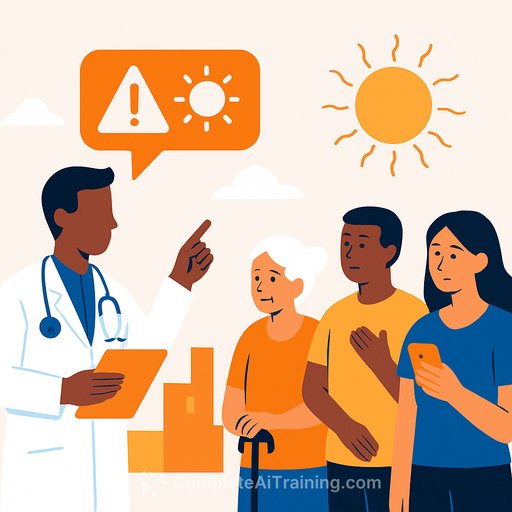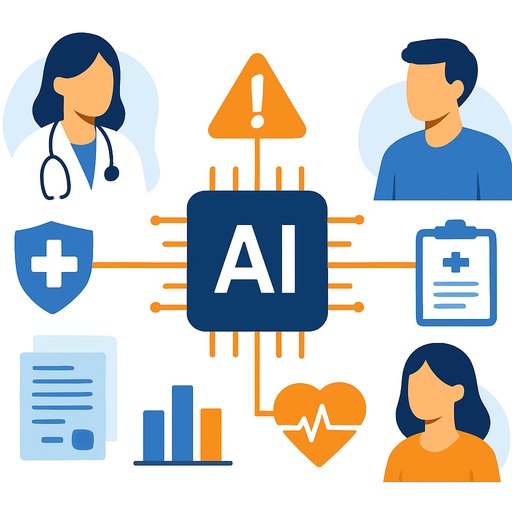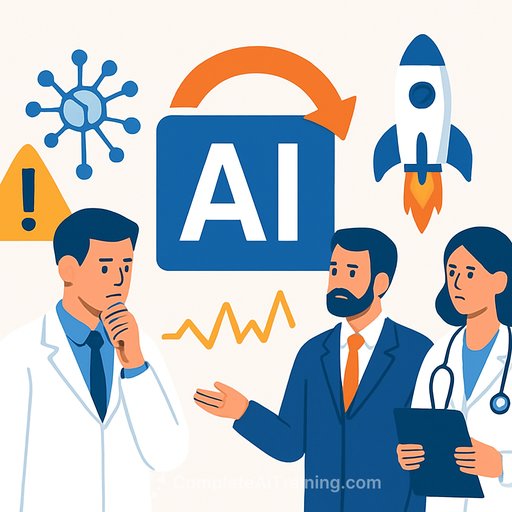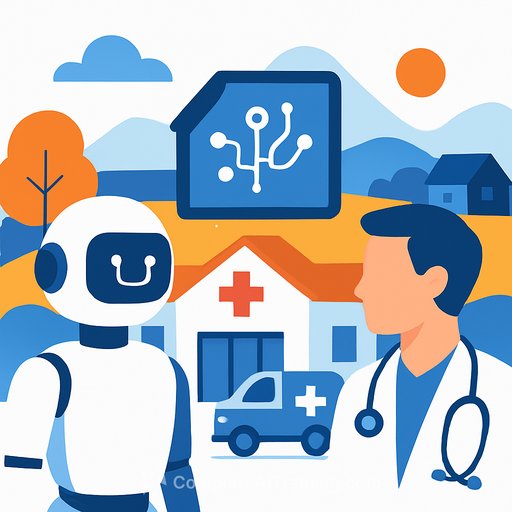Hippocratic AI and Eraas Health partner to turn climate risk signals into patient outreach
Hippocratic AI has formed a strategic partnership with Eraas Health to send alerts to high-risk populations before adverse weather causes injuries or avoidable hospitalizations. Eraas Health's platform fuses environmental and clinical data to flag members at elevated health risk, then routes those insights to Hippocratic AI's Polaris Constellation System for multilingual, real-time outreach.
The goal: proactive engagement that prevents harm, solves logistics like transportation, and connects members to care teams when issues surface.
How the system works
Eraas Health ingests environmental signals (heat, air quality, storms, cold snaps) and combines them with clinical data to identify unprotected members. Hippocratic AI's healthcare agents then contact members in their preferred language, provide risk-specific guidance, confirm needs, and capture barriers such as transport or medication access.
If a social or clinical concern is found, the system alerts care teams or local resources immediately. According to the companies, the integrated program can be activated in less than a day.
What they're saying:
"Proactive outreach can save lives. Through our partnership with ERAAS Health, we're operationalizing climate data into compassionate, real-time conversations that help people stay safe and connected to care," said Munjal Shah, CEO of Hippocratic AI.
Samrat Kulkarni, founder and CEO of Eraas Health, added: "This integrated system with Hippocratic AI can be activated in less than a day and is a game-changer today for payors and providers to protect their members from sudden and foreseen environmental risks."
Why it matters for payors, providers, and public agencies
- Reduce avoidable ED visits and admissions tied to heat waves, wildfire smoke, hurricanes, and extreme cold.
- Address equity and access with multilingual outreach; agents currently speak 15+ languages, including Spanish, Mandarin, Vietnamese, and localized dialects like Emirati Arabic.
- Close SDOH gaps in real time by coordinating transportation or routing to community resources during weather events.
- Strengthen compliance and safety programs with auditable alerts, outreach logs, and clear escalation paths.
Deployment checklist for clinical and care management leaders
- Define triggers: temperature thresholds, AQI, flood/fire zones, power outage risk, and medication sensitivity (e.g., diuretics during heat).
- Data readiness: confirm geolocation accuracy, language preferences, consent/opt-in, and PHI governance.
- Integrations: EHR, CRM, and care management tools for two-way notes, tasks, and alerts.
- Escalation routing: care teams, transportation vendors, community partners; set SLAs and after-hours coverage.
- Member experience: clear scripts, culturally competent messaging, and choice of voice or SMS-based outreach.
- Measurement: hospitalizations/ED visits avoided, outreach reach rate, resolution time, member satisfaction, and cost offsets.
The larger trend
Hippocratic AI has been expanding deployments across care settings and geographies. University Hospitals began using its conversational agents inside clinical workflows for patient engagement across non-diagnostic use cases. KPMG partnered with Hippocratic AI to help address workforce shortages by offloading routine interactions to voice agents.
The company was selected to participate in the Health Tech Ecosystem, part of the Centers for Medicare & Medicaid Services digital transformation efforts. Internationally, partnerships include Eucalia to launch a Japanese-language healthcare agent and Burjeel Holdings to support patient-facing tasks across facilities in the UAE and Oman.
Clinical use cases to prioritize now
- Heat safety checks for seniors, cardiac, renal, and pregnant populations; hydration and cooling guidance; transport to cooling centers.
- Air quality alerts for COPD, asthma, and heart failure; masking and indoor air tips; medication and refill checks.
- Storm readiness for power-dependent patients (oxygen, dialysis); backup plans and emergency contacts.
- Cold exposure prevention for patients with circulatory issues; shelter and transport coordination.
Policy and public health context
Weather-driven health events are predictable at scale. Programs that convert forecasts into targeted member actions can prevent injuries and keep vulnerable patients connected to services. For background on climate and health risks, see the CDC Climate and Health Program.
Bottom line
Turning climate signals into immediate, multilingual outreach closes a critical gap between forecast and follow-through. For healthcare leaders, the lift is straightforward: set clear triggers, wire in routing, and measure avoided utilization. The upside is fewer emergencies, better member safety, and leaner operations during high-risk weather.
Need to upskill teams on AI-driven patient engagement? Explore practical training resources at Complete AI Training.
Your membership also unlocks:






